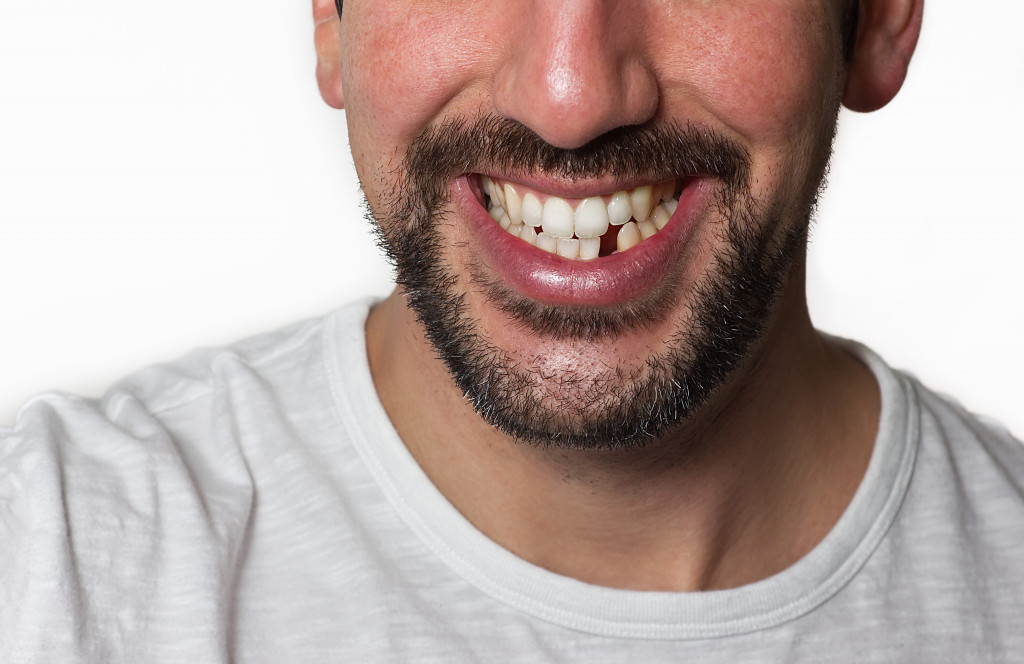- Missing teeth can lead to bone loss in the jaw and serious dental issues.
- Replacing teeth is important in preventing potential bone loss in the jaw.
- Good oral habits, such as proper brushing and flossing, can help maintain healthy bones.
- Avoiding sugary and acidic foods, quitting smoking, and taking calcium supplements can also help prevent bone loss.
- Consulting with a dental professional is recommended to discuss tooth replacement options.
Missing teeth can cause bone loss in the jaw over time, leading to several dental problems. Fortunately, there are steps that one can take to prevent bone loss caused by missing teeth. By taking these preventive measures, one can reduce their risk of developing serious oral health issues due to bone loss caused by missing teeth.
Consider getting a tooth replacement.
A tooth replacement is a valuable tool in preventing the potential bone loss caused by missing teeth. Considering this option is important, as bone loss can irreversibly alter one’s face and bite. Furthermore, it can lead to a decrease in overall jawbone density and an increase in the risk of jawbone fractures.
Getting a tooth replacement can help keep the jawbone healthy and prevent bone loss, reducing the risk of these serious consequences. When it comes to tooth replacement options, several choices are available, each with pros and cons. Consulting with a dental professional is the first step in understanding which options might best suit one’s particular needs and dental health.
Practice good oral habits.
Practicing good oral habits is key to protecting the jawbone from bone loss. Here are some of the best practices for keeping your jaw healthy:
Quit smoking.

Quitting smoking is an essential step toward maintaining good oral health. While many are aware that smoking may cause gum disease, there is a lesser-known fact that smoking can also lead to bone loss in the jaw that holds teeth in place.
This condition, called Periodontitis, weakens the jawbone and causes teeth to fall out, leading to bone loss. To prevent this serious condition, it is necessary to quit smoking. Quitting smoking can be difficult, but several resources are available to help make the process easier.
Nicotine replacement therapy, counseling, support groups, and medication are all effective ways for smokers to quit. By quitting smoking, individuals can protect their oral health, prevent bone loss, and live a healthier, happier life.
Avoid sugary and acidic foods.
Properly maintaining a healthy diet can be crucial in preserving bone health for individuals with missing teeth. Avoiding sugary and acidic foods is essential in preventing further bone loss for those already suffering from the condition.
Sugary and acidic foods, if consumed excessively, can lead to dental decay, further resulting in the loss of teeth and the deterioration of the jawbone. This is where avoiding these types of foods becomes paramount.
Ensuring the diet is packed with calcium, protein, vitamins D and K, and other essential nutrients complemented with regular exercise can also help preserve bone health. Individuals with missing teeth can avoid further bone loss and promote healthier bone regrowth with discipline and knowledge on what to consume and avoid.
Brush twice a day with fluoride toothpaste.
As an expert on dental health, it is essential to stress the importance of brushing twice daily with fluoride toothpaste to prevent bone loss. When teeth are missing, the bones in the jaw can start to deteriorate, causing further dental problems and complications. Proper brushing techniques ensure that any remaining teeth are kept healthy and free from decay while stimulating the bones in the jaw to maintain their density.
Using fluoride toothpaste is also crucial as it helps to strengthen teeth and prevent cavities, reducing the risk of tooth loss and bone deterioration. By committing to a simple and consistent oral hygiene routine, individuals can significantly reduce the risk of bone loss caused by missing teeth and enjoy a healthier, brighter smile for years.
Floss daily.

Proper flossing is crucial for maintaining optimal oral hygiene, preventing gum disease, and keeping teeth and gums healthy. It’s a routine that should be practiced daily to ensure that all areas between teeth are thoroughly cleaned. It’s especially important to floss near the gaps of missing teeth, as this area is prone to the buildup of bacteria, plaque, and food particles that can exacerbate gum disease.
Neglecting this area can also lead to significant bone loss, ultimately affecting the overall health and structure of the mouth. Ensuring every nook and cranny is thoroughly flossed can prevent such complications and keep the mouth healthy for a lifetime.
Take calcium supplements.
Taking calcium supplements is important in preventing bone loss caused by missing teeth. As bones are constantly renewed, providing the necessary nutrients to maintain their strength and integrity is essential.
Supplementing calcium helps increase bone density and reduces the risk of fractures, especially in jaw areas with missing teeth. However, it is essential to take calcium supplements correctly to ensure maximum absorption by the body.
The best time to take calcium supplements is with meals, as the stomach acid produced during digestion aids absorption. It is also recommended to spread the calcium intake throughout the day, as the body can only absorb a certain amount. As an expert, it is essential to advise patients on calcium supplements to prevent bone loss and promote good oral health.
These are just some steps that can be taken to prevent bone loss caused by missing teeth. Following these tips and good oral hygiene practices is recommended to maintain a healthy jaw and prevent bone loss. However, it is still important to seek personalized advice from a dental professional.
